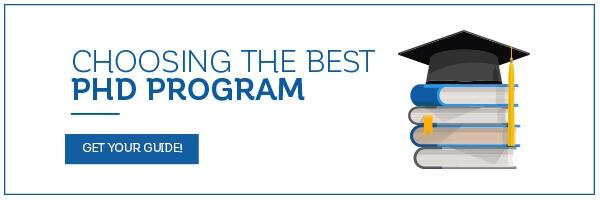|
You’ve Caught the “Academic Ambition” Bug—Now What? |
||
You’ve Caught the “Academic Ambition” Bug—Now What?
[Note: All names and identifiable information have been changed to protect the clients of Accepted.]
I have had a number of clients come to work with me because of an amazing change they’ve recently experienced. This change—this shift—is internal; it is exciting; it will last them their whole lives. But it might be a change that is tricking applicants into thinking they are prepared for certain programs they are not yet well-suited for. What shift is this, and what is the best solution?
When I first spoke with Shannon, she was flying high. After a challenging college career and years of self-doubt in her academic abilities, she had finally worked her way into a reputable MA program in a field she loved. She had professors who believed in her, grades that reflected her stellar work, and a head full of exciting ideas she was ready to explore on a new level. While Shannon had once been unsure of her ability to complete college, she was now approaching me to work on an application for admission into a Harvard PhD program.
I looked over her materials. I saw some great grades; I saw coursework on an MA level, from a great school, that reflected serious academic commitment and passion. There was just one problem: I saw a resume lacking extracurricular experience within the field Shannon focused on. I couldn’t find in her transcripts or elsewhere evidence that she had presented at conferences; cultivated the requisite language skills required in her field; or demonstrated leadership experience. Additionally, when Shannon and I sat down to brainstorm what a PhD project could potentially look like for her, it was clear that she had the energy and excitement to learn and research, but was not yet steeped in the scholarship of the field, an absolute prerequisite for her intended academic program.
What was going on? How could an applicant be so set on doctoral-level work and yet have a number of key elements of her application missing? Did this mean that she, and many other doctoral applicants like her, are simply too hopeful? Are they simply “not PhD material”?
Through my work with Shannon and subsequent clients who have demonstrated similar ambitions coupled with comparable resumes and transcripts, it is clear to me that academic ambition, especially when cultivated during or after one’s college years, can be viewed as only one of two key elements for applicant success. These two necessary elements are, of course: 1) academic ambition: a desire to perform at a high level, to be academically challenged and to work hard, to be intellectually curious and want to explore, to be ambitious about pursuing more education, often at very reputable institutions; and 2) documentation of excellence in one’s field: this includes transcripts that show relevant coursework and strong performance; resumes—and in the humanities, curricula vitae that demonstrate experience both in and outside of academic settings.
What does it mean to have only one of these things, such as ambition, but to lack the documentation, the necessary credentials for admittance? What it does NOT mean is giving up one’s academic pursuits altogether. But it DOES mean that you might have to recalibrate, re-strategize, your goals and the path towards them.
I have worked with many clients in this situation, who have the drive and determination to pursue advanced academic degrees but whose credentials are still lacking. Often, this leads us to a serious conversation, sometimes temporarily disappointing, about identifying intermediate steps before applying for the PhD, or the advanced degree of one’s dreams. This might come in the form of applying for an MA degree instead of the PhD, in order to get that important intermediate degree that will set you up with recommendations from top professors, one to three years of hopefully fantastic grades and transcripts, and perhaps most importantly, years of focused work within the intended field of study. Other times, we discuss taking a year off before applying, and we strategize what to do with that time: to study for the GMAT or GRE; to work in an industry related to one’s field; to do research for a professor. All of these options help to complement the academic ambition with the necessary credentials to bolster a graduate school application.
Once you are armed with both ambition and credentials, you are ready to apply! Call Accepted today!
 By Rachel Slutsky who has as served as a writing tutor, consultant, and adjunct professor teaching writing. Rachel has assisted applicants in applying to an array of MBA and graduate programs. She earned her masters from the University of Chicago and is currently pursuing her PhD at Harvard University. Want Rachel to help you get Accepted? Click here to get in touch!
By Rachel Slutsky who has as served as a writing tutor, consultant, and adjunct professor teaching writing. Rachel has assisted applicants in applying to an array of MBA and graduate programs. She earned her masters from the University of Chicago and is currently pursuing her PhD at Harvard University. Want Rachel to help you get Accepted? Click here to get in touch!
Related Resources:
• Plotting Your Way to a PhD, a free guide
• The Secret to MA/MS and PhD Admissions: Contacting Potential Advisors
• How to Be a Competitive PhD Applicant and Apply to the Best Programs for You
The post You’ve Caught the “Academic Ambition” Bug—Now What? appeared first on Accepted Admissions Blog.


[0] Comments to this Article